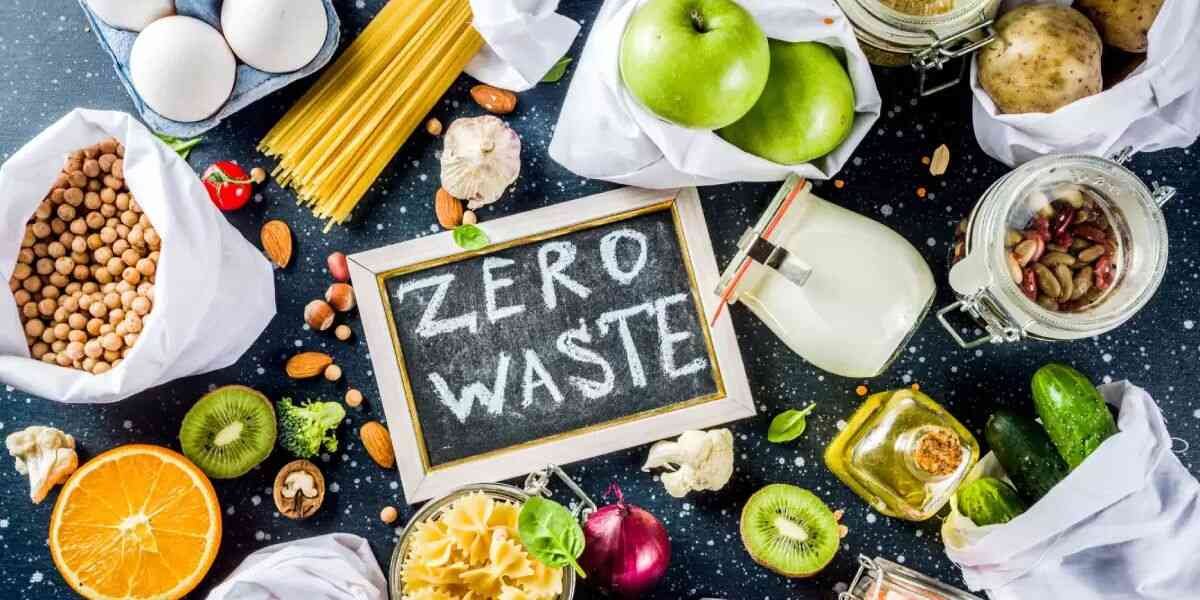In this world sustainability and environmental awareness are gaining importance. Zero Waste Kitchen is gaining importance because it helps the planet and lead to healthier habits and savings. Many people are turning their focus to the kitchen, the heart of the home. This article will give you the importance of creating a Zero Waste Kitchen and how to implement easy and actionable steps in your everyday life.
What is Zero Waste Kitchen?
Zero Waste Kitchen is designed to minimize the waste products. The ultimate goal is to send little waste to the earth recycle it thoughtfully and compost what cannot be reused. To do this make conscious choices about how we buy, store, cook and dispose of food and kitchen products.
The Zero Waste Kitchen helps to follow small changes in the lifestyle that have a big impact on the environment. By reducing waste in the kitchen you can also help in the conservation of resources, reduce pollution and support a sustainable way of life.
The Problem with Kitchen Waste
Every year millions of tons of food are wasted. Much of this waste is caused by kitchens both at home and in restaurants. Wasting of food means that the resources used to grow, transport and store food also go to waste. And when these wastes are decomposed in landfills it produces harmful greenhouse gases particularly methane.
Plastic packaging is a major source of kitchen waste. Use of plastics for packaging of food do not break down easily and it is the biggest contributor to environmental pollution. A Zero Waste Kitchen aims to reduce use of disposable products which in turn helps to reduce plastic pollution.
Steps for Creating a Zero Waste Kitchen
There are many ways for transforming your kitchen into a zero waste kitchen. Some of these changes are easy and immediate while others may take more time to implement. However every small step helps to create a more sustainable kitchen.
Composting
Composting is one of the most useful step you can take to achieve a Zero Waste Kitchen. Kitchen scraps like vegetable peels, fruit cores and eggshells can be composted instead of throwing away. Composting helps to reduce the amount of organic wastes which are a major source of methane emissions. If your home does not have space for a traditional compost bin then many cities offer food waste collection services. Otherwise you can use a small indoor compost bin that works in apartments.
Meal Planning and Batch Cooking
Food waste can be significantly reduced by proper planning of meal. By planning your meals for the week you can avoid to buy unnecessary ingredients and ensure that everything you buy gets used. Batch cooking helps to minimize waste by using large quantities of food before it spoils.
This strategy is not only essential for a Zero Waste Kitchen but it can also save your time during the week by reducing the need to cook every day. Leftover food can be frozen for later use which minimize the risk of food spoiling.
Reusable Containers and Storage
The most significant cause of kitchen waste is use of plastic packaging. Switching to reusable containers for storage can greatly reduce this. Glass jars, stainless steel containers and beeswax wraps are excellent alternatives to single use plastics like plastic wrap and zip lock bags.
When you are doing grocery shopping bring your own containers to put things like grains, nuts, and spices. This helps to reduce the amount of packaging that enters your kitchen and keeps your Zero Waste Kitchen free from unnecessary things.
Buying in Bulk
Bulk shopping is a major component of a Zero Waste Kitchen. When you are buying items like grains, beans and flours in bulk you should minimize packaging waste and save money. Many stores are now offering bulk sections where you can take your own containers and fill with staples. By reducing the amount of packaging waste you can effectively cut down on waste in the kitchen.
DIY Cleaning Products
A Zero Waste Kitchen is mainly about reducing waste caused by food. It is also about cutting down on the waste produced by cleaning products. Most of the cleaning products come in plastic bottles and contain chemicals that are harmful for the environment. By making your own eco-friendly cleaning products you can eliminate plastic and harmful chemical wastes from your kitchen.
Simple ingredients like vinegar, baking soda and lemon are used for creating effective cleaning solutions for countertops, appliances and dishes. This not only reduces waste products but it is also safe for your family.
Reducing Food Waste
Getting creative with leftovers is an important part of maintaining a Zero Waste Kitchen. Leftover vegetables can be turned into soups or stews. Bread can be used to form croutons. Overripe fruit can be used in smoothies or for baking goods. You can also use vegetable scraps and bones to make broth by ensuring that nothing goes to waste.
By using every part of the food you can reduce the food waste generated in your kitchen. Every small changings like repurposing leftovers can make a big difference in reducing food waste.
The Importance of Zero Waste Cooking
Cooking in a Zero Waste Kitchen is all about reducing waste, cooking with intention and mindfulness. Cooking from scratch, using fresh ingredients and avoiding over processed foods are important aspects of zero waste cooking. This not only reduces waste but also promotes healthy eating habits.
The Benefits of Zero Waste Kitchen
Here are a few ways by which a zero waste approach can positively impact your life:
Financial Savings
One of the biggest advantages of a Zero Waste Kitchen is the financial savings. By reducing food waste, buying in bulk and reusing containers you can cut down unnecessary expenses. These little changes in a Zero Waste Kitchen can lead to long term savings. For example reusable storage containers and cloth towels have high cost but they can reduce the need for constantly buying plastic bags and paper towels.
Healthier Eating
A Zero Waste Kitchen encourages you to cook from scratch and avoid processed foods and leading to healthier meals. When you can focus on using fresh whole ingredients and reduce packaging waste you can naturally lead to healthier and less processed options.
Environmental Impact
The environmental impact of a Zero Waste Kitchen cannot be overrated. By reducing food waste, composting and cutting down on plastics. You can help in the conservation of resources, reduce pollution and fight with climate change. Every small action you take in the kitchen contributes to a larger global effort to reduce waste and protect the planet.
Overcoming Challenges in Creating a Zero Waste Kitchen
While the idea of a Zero Waste Kitchen is appealing it can be challenging to implement. Here are a few common challenges and how to overcome them:
Access to Bulk Stores
Everyone does not have access to stores that offer bulk shopping so it is difficult to reduce packaging waste. In these cases look for online retailers that offer bulk options.
Time Constraints
Meal planning and cooking from scratch can take more time than using processed foods. However by using freezing leftovers you can save time during the week while still maintaining a Zero Waste Kitchen.
Cost
While many zero waste practices lead to long term savings but the initial cost of things like reusable containers or eco-friendly products can be higher than their disposable counterparts. However these items pay for themselves over time and you can gradually build up your zero waste toolkit according to your budget.
Final Thoughts
Making a Zero Waste Kitchen is not something that happens overnight. Every small change you make brings you closer to a more sustainable lifestyle. There are many ways to start reducing waste in the kitchen like composting, meal planning, bulk shopping and reducing use of plastics. The benefits of a Zero Waste Kitchen extend beyond the environmental impact and it can lead to healthier eating, financial savings and a good way of living.
We are facing the growing challenges of climate change and environmental degradation. So adopting a Zero Waste Kitchen is a practical and easiest way in contribution to a healthier planet.






